2nd District Court of Appeals Grants Writ of Habeas Corpus
Attorney David Little successfully represented a client before the 2nd District Court of Appeals on a Petition for Writ of Habeas Corpus.
The case arose out of the 10th Judicial Circuit, Polk County, Florida. The client, along with a co-defendant, was arrested after Polk County Sheriff’s Deputies executed a search warrant at a home in Polk County, Florida. Inside the home deputies located over 200 grams of cocaine and items of paraphernalia alleged to be used in connection with the sale of cocaine. The client was charged with, among other charges, trafficking in cocaine.
At the clients first appearance, the State of Florida moved for a Nebbia hold as a condition of bond. United States v. Nebbia, 357 F.2d 303 (2nd Cir. 1966). Nebbia requires that prior to being released on bond, a defendant must make a showing to the Court that the source of funds used to post bond and any collateral used to secure the bond, are from legitimate sources and not derived from criminal activities. While Nebbia is a Federal case, the State of Florida has adopted the requirements of Nebbia, and they are located at § 903.046(f), Florida Statutes.
In the present case, during the Nebbia hearing, and a subsequent re-hearing after the trial Court initially denied the defendant’s Motion to Lift Nebbia Hold, we presented testimony of three witnesses. Two witnesses testified as to the source of the funds which would be used to pay the bondsman’s premium, and the third witness, the bondsman, provided sworn testimony to the trial Court that his company would secure the defendant’s bond without requiring additional collateral.
The trial Court made a finding that the funds used to post the 10% premium were from legitimate sources, and therefore could be used to pay the premium. However, the trial Court disagreed with the defense’s position that the bondsman could post a bond on behalf of the defendant without requiring collateral to secure the bond. Even in light of the bondsman’s sworn testimony, the trial Court refused to lift the Nebbia hold and advised the defense that the hearing could be reset for a third time and the defendant would need to present testimony from representatives of the bondsman’s surety company before the Court would lift the Nebbia hold.
In response to the trial Court’s refusal to lift the Nebbia hold, we filed a Petition for Writ of Habeas Corpus to the 2ndDistrict Court of Appeal. In our Petition we argued that our client was being unlawfully detained as a result of the trial Court’s refusal to lift the Nebbia hold. Our argument centered around the requirements of Nebbia and § 903.046(f), Florida Statutes, which only require us to establish the lawful source of funds used to procure a bond, and the lawful source of any proposed collateral. Finally, we argued contrary to the State’s position, that the trial Court’s requirement that we produce witnesses from the surety company to provide testimony regarding its businesses practices, falls outside the requirements of Nebbia, as well as § 903.046(f), Florida Statutes, and ultimately created an undue burden on our client not required by law.
On August 9, 2016, the 2nd District Court of Appeals agreed with us and issued a Writ of Habeas Corpus finding that:
“the petitioner has established, and the trial court has found, that the funds used to procure an appearance bond from [the bail bond company] are not linked to or derived from criminal activity, and the evidence presented established that the bail bond company is not requiring the petitioner to provide additional collateral, the petition for writ of habeas corpus is granted to the extent that the petitioner is entitled to release from custody upon posting of the bond . . .”
A link to the Order is located below.
David Little focuses his practice on representing individuals accused of Federal and State criminal offenses.

